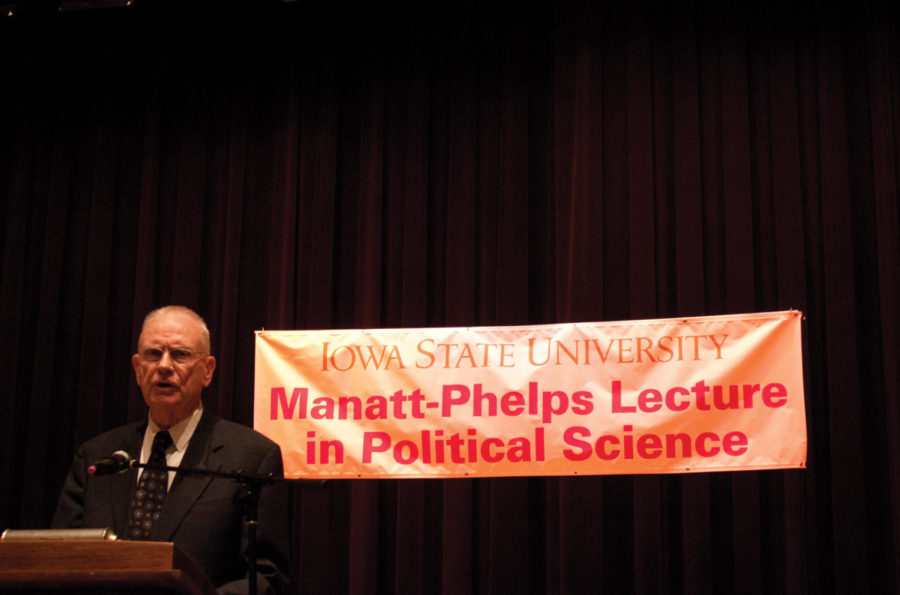Lecture discusses challenges facing U.S. after conflicts in Middle East
March 27, 2012
In the eyes of former Indiana congressman Lee Hamilton, the question of whether to take a pessimistic or optimistic view toward the future of the United States is not important. Instead, importance lies in the future actions that will be taken by American policy leaders.
“Far more important than what we think about the nation’s future is what we do about the nation’s future,” Hamilton said.
Hamilton’s Tuesday speech marked the 10th annual lecture in the Manatt-Phelps Lecture in Political Science series.
The lecture was opened by ISU President Steven Leath and was shortly followed by a tribute to Charles T. Manatt, one of the originators of the Manatt-Phelps Lecture series, who passed away last year.
Thomas Phelps, a leading banking attorney and a second originator of the Manatt-Phelps Lecture series, commented on the life of Manatt.
“He has done more in his lifetime than most of us in two or three lifetimes,” Phelps said.
Hamilton’s lecture outlined the realities and challenges that the United States now faces after Iraq and Afghanistan.
Among the central realities addressed was the topic of the pre-eminence of American power. Hamilton expressed his belief that the United States remains the world’s No. 1 power today.
“The world still looks to the United States for leadership,” Hamilton said.
Other central realities included the shifting alignment of the great powers, the affects of globalization and the continuing turmoil that exists in the world.
Hamilton also stressed specific challenges that the United States will need to confront. The No. 1 challenge, in his opinion, is nuclear proliferation.
“There is a growing number of nations that either posses or are getting mighty close to possessing nuclear arms,” Hamilton said.
Other challenges included the global economy, the national debt, energy and the environment, the United States’ relations with China and cyber security.
Terrorism was not added to his list of pressing challenges facing the United States today.
“I do not believe that terrorism is an existential threat to the United States,” Hamilton said.
Hamilton ended his lecture by announcing his hopes for the future.
“My hope is that this country will respond to the challenges that we confront and that we will continue to be a world leader,” Hamilton said.
“I found Hamilton’s lecture to be very informative. He brought up a lot of good ideas that have been underplayed in the media,” said Ryan Pecinovsky, senior in mechanical engineering.

















